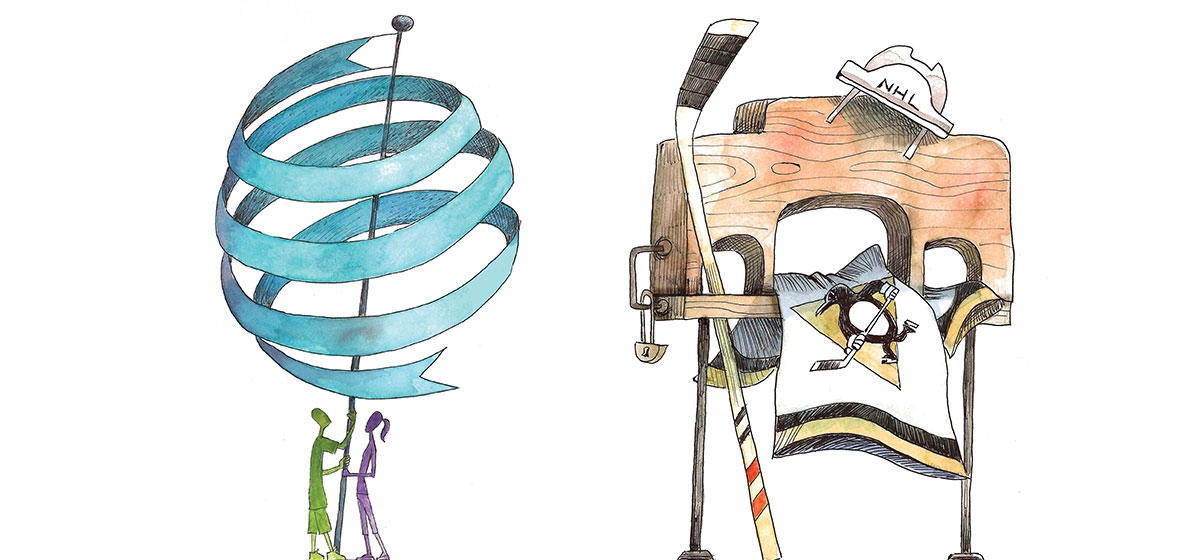Stocks & Pedestal, Winter 2013

There was a time when, if you said, “Pittsburgh is an insular city that’s not attractive to young people,” you would have been right. Not anymore.
The city is actually getting younger, with more than 50 city neighborhoods increasing their population of young adults since 2000. More young people are moving here than leaving, and those who are here compose the nation’s third most educated young workforce. (See the new Young Adults Report at pittsburghtoday.org)
Augmenting that reality and broadcasting it all over the world, the One Young World Summit was the kind of powerful event that will likely lay to rest Pittsburgh’s reputation as an old place once and for all.
In October, One Young World attracted to Pittsburgh 1,300 delegates from 180 countries, along with former President Bill Clinton, former U.N. Secretary General Kofi Annan, and a potent list of speakers who both inspired and were inspired by the young global talent.
From the region’s successful courting of the third annual summit to its flawless execution, the gathering is proof that Pittsburgh’s G-20 Summit was no fluke and that the city is ready for prime time on a global scale.
Involved in the effort were 60 companies and 300 volunteers. All of them—from those who saw the opportunity and wooed the event’s founders, to those involved in the logistics, to the 100 families who hosted meals for the delegates in their homes—deserve the region’s gratitude for pulling off a powerful, practical and symbolic victory for Pittsburgh.
These are the actions and the can-do attitude that build a great city. Pittsburgh should be proud of being home to the summit, and we should ask ourselves: What’s next?
In the stocks: The Penguins and The NHL. What about the public?
In 2007, shortly after the Pittsburgh Penguins notified public officials that they would entertain offers to move the team out of town, government leaders forged a deal to build the Penguins a new arena. Ultimately, the Consol Energy Center cost about $310 million, financed with millions and millions of public dollars over the life of a 30-year bond issue. The Penguins also were given the right to develop 28 nearby acres of publicly owned land, bordering Downtown and the lower Hill District.
It’s the kind of sweet deal that only sports teams get. And they get those deals because it is generally agreed that pro sports teams are good for Pittsburgh—contributing to making Pittsburgh a “big league city” and, especially when they win, building excitement and pride in being a Pittsburgher.
At a time when the U.S. economy’s future is in question, when cuts in education and all manner of other spending are legion in Harrisburg, and when Pittsburgh operates under an oversight committee because of financial troubles—at such a time, the wisdom of spending public money on sports teams could be questioned. Conversely, perhaps such a time is when we need the diversion and entertainment of the Penguins more than ever.
We’re putting the Penguins and the National Hockey League in the stocks because of their inability to play hockey and to deliver on the tacit promise they made when the public built their arena. At this writing, the league has canceled all games through November. Yes, the Penguins are only one of the teams involved, but Penguins owners and players bear responsibility for the impasse.
Because they can’t agree how to split the millions, they are hurting workers and businesses who depend on the games. They’re disappointing fans, some of whose daily lives are made a little brighter when their team plays. And they’re hurting our community’s finances—a home game generates about $100,000 in amusement, parking and state sales taxes. Hockey’s players and owners are lucky; they don’t feel much financial hardship. But given what this city and others like it have done for them, they should consider their civic duty. And they should consider the hardship that their breach of that duty is imposing on those who make their game possible.


